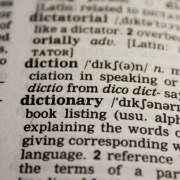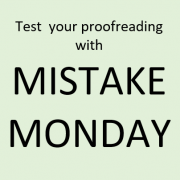Moot or not?
For years, I assumed that if something was “moot,” it didn’t matter, or wasn’t worth arguing about. Was I ever wrong! However, it turns out that I have company in misunderstanding this word. Here’s what I discovered thumbing through Theodore Bernstein’s The Careful Writer: A Modern Guide to English Usage. Moot means arguable or subject […]
Top posts from 2020’s second quarter
Check out my top posts from the second quarter! They’re a mix of practical tips on marketing (#1), writing (#2, #3, #5) and punctuation (#4). Ready-to-use content for financial advisors—Everyone wishes for marketing shortcuts. If you don’t have time to write your own content, you may consider using content written by others. It’s not ideal. […]
4 great tips for writing sentences
Joe Moran’s First You Write a Sentence has some great sentences about sentences. Here’s a sampling of them, sorted by the lesson they suggest. 1. Slow down Moran writes: Most of us, when we write, march too quickly on to the next sentence. To write intelligibly is hard enough, so be sure you have done that […]
MISTAKE MONDAY for June 29: Can YOU spot what’s wrong?
Can you spot what’s wrong in the image below? Please post your answer as a comment. If the writer used a proofreader, they should have caught this obvious error. I post these challenges to raise awareness of the importance of proofreading.
Solve the right problem
“A great solution to the wrong problem will always fail,” says Nielsen Norman Group’s Sarah Gibbons in her three-minute video on “User Need Statements in Design Thinking.” Nielsen Norman Group consults on website usability. However, much of what Gibbons discusses applies to other written materials, too. User need statement Gibbons defines a user need statement […]





